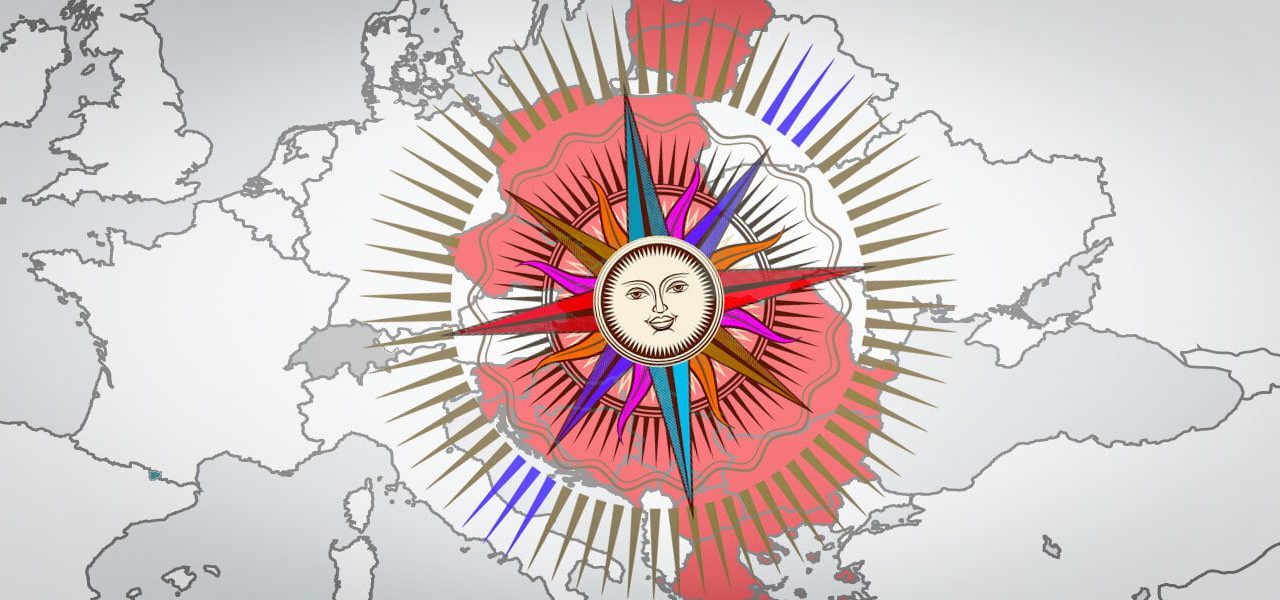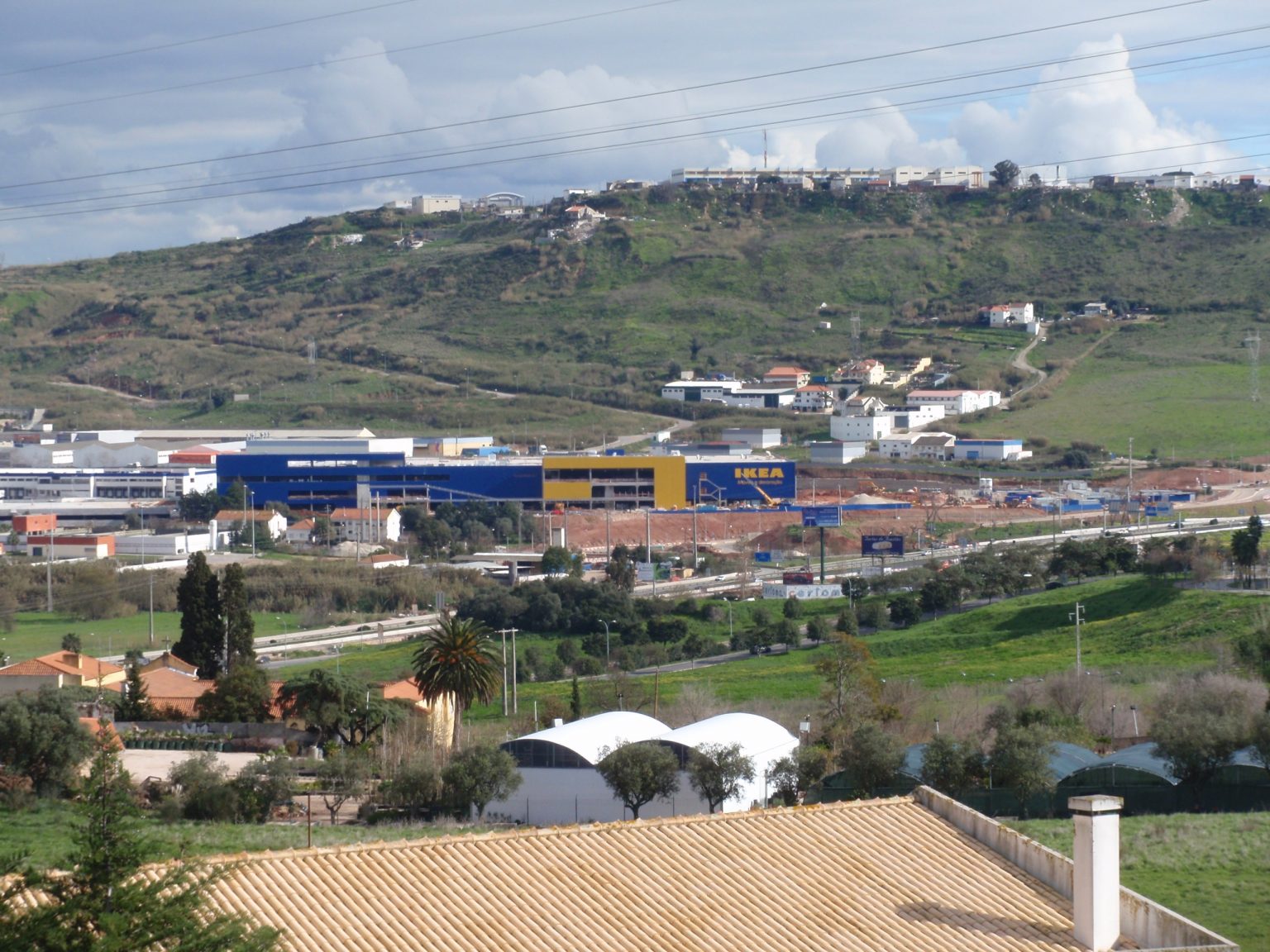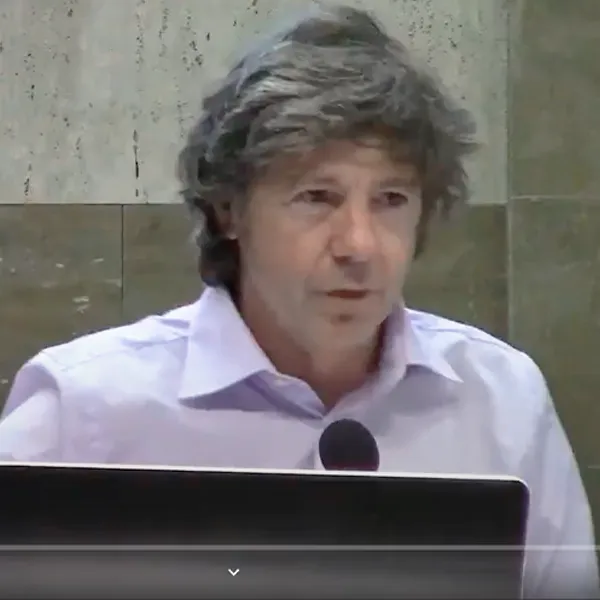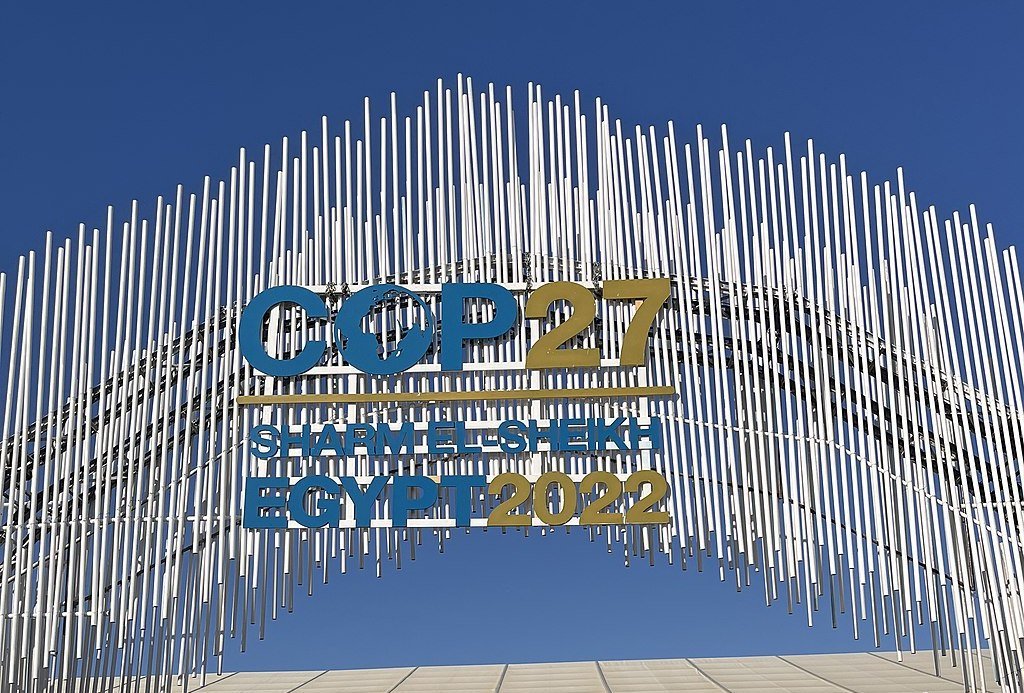“The failure to change the world may not be unrelated to the failure to understand it.”
– Ray Brassier, Concepts and Objects
There’s an old Soviet joke from “Radio Yerevan” series popular in the 1950s. During one of the programs, a listener calls the station and asks, “Is it true that Rabinovitch won a new car on the lottery?” The radio host responds, “In principle, yes, it’s true, only it wasn’t a new car but an old bicycle, and he didn’t win it but it was stolen from him.” This perfectly describes the situation in Eastern Europe today.
Since the fall of the Berlin Wall, the importance of maintaining these countries’ independence and sovereignty has been discussed numerous times, but not only has this independence not been achieved, but clientelism has been strengthened. A strange clash of visions for the region’s “independence” is taking place. Some advocate for increased American influence, while others argue for a stronger EU, and some minor groups endorse collaborating with the Russians. The countries in the region appear unable to define their own national interests, and their political classes do not believe they are capable of developing their own projects, ideas, and positions. Their agenda is solely determined by what Western powers demand of them.
Of course, Bulgaria is no exception. The country is caught between several critical axes: on the one hand, far-right and nationalist groups are attempting to increase their influence and control over the country’s politics; on the other hand, Bulgaria has become one of NATO’s most important bases in Eastern Europe; and, finally, there is a strong pro-Russian sentiment in society. The West, however, is the only significant player. The trade dynamics are provided by economic ties with it, and Bulgaria is a member of NATO and the EU. It also provides the Bulgarian authorities with leverage to pursue their regional geopolitical interests in the Western Balkans.
Of course, in the context of the West’s expansion, pro-Russian sentiments in Bulgaria are the most severely suppressed. The prosecution announced the alleged discovery of a Russian spy cell operating within the Bulgarian Ministry of Defence in March 2021. Boyko Borissov, the then-prime minister, was also heavily chastised for assisting in the construction of the Turkish Stream pipeline (a Russian energy project) on Bulgarian territory using Bulgarian taxpayers’ money, and for not being hostile enough to the Russians in general. And now, following the parliamentary election in early April and the recent parliamentary election in July 2021, it’s becoming clear that the Americans are withdrawing their support for Borissov and his party. In addition, nationalists are reorganizing in order to achieve better electoral results.
This broad context serves to highlight Bulgaria’s serious internal and international problems. Its citizens appear to be politicized, but only half-heartedly. At the same time, the public debate lacks ideas and visions, but focuses on personal attacks on political leaders. It is clear that there is a lack of critical understanding of the situation, let alone socioeconomic solutions or mass class consciousness.
What should Bulgarians do? How can they possibly advance in a way of their choice, rather than outside powers use them as proxies? We believe that the Bulgarian Left has a way out of this dilemma.
The left is generally more knowledgeable in social theory, has more balanced positions, and understands the political and geopolitical situation in all of its complexities. The Bulgarian left has the potential to reject both the West and the East in favor of a third, or middle, position. Furthermore, as a result of its internationalization, it has a mindset that allows for greater regional cooperation with similar tendencies in Central, Southeastern, and Eastern Europe. Such a stance will not be novel; after World War II, Iran had a left-wing party known as “The Third Force,” which sought a middle ground between the two Cold War poles. Last but not least, the left is by definition associated with change, and change is frequently achieved by opposing hegemonic agendas, whether Western or Eastern. And Bulgarians could be especially useful in this regard because they are too diverse in their political and geopolitical affinities, so they need to forge their own path, independent of all affiliations, to give them a backbone.
Of course, this shift does not imply a return to the pretentious and idealized realm of “pure politics.”[efn_note]Žižek, Slavoj, (2006) The Parallax View, MIT Press, p. 55–56[/efn_note] Although “anti-capitalism cannot be directly the goal of political action – in politics, one opposes concrete political agents and their actions, not an anonymous ‘system,’ it should be its ultimate goal, the horizon of all its activity,” according to Slavoj Žižek[efn_note]Slavoj Žižek, “Answers without Questions,” in The Idea of Communism, vol. 2, ed. Slavoj Žižek (London: Verso, 2013), 195.[/efn_note]. This strategy, as Agon Hamza previously argued, can be summarized by distinguishing between two types of politics: we should leave Politics (with a capital P) for thinking, and in this way, we will be able to be more realistic about what politics (with a small p) can actually accomplish. This is not to say that we shouldn’t engage in politics, but it does mean that, while pragmatism today is inherently corrupted and dirty work of politics, we should have no illusions about the accomplishments in this field[efn_note]https://www.philosophy-world-democracy.org/democracy-and-its-discontents[/efn_note].
The left is stigmatized in the majority of Eastern European countries. The official left, the remnants of former communist parties, are regarded as backward-looking, oligarchic, clientelistic, and so on. Regardless of the left’s pessimistic outlook, there is no denying that a country like Bulgaria is dealing with increasingly extremist forms of capitalism. Over the last three decades, the relentless push for financial discipline and optimization, for flexibility and mobility, has put pressure on the implementation of capitalist and austerity policies, and the role of the left in criticizing this system has been very important. In those countries, there must be a strong independent left that can encourage change.
Since Bulgaria’s independence from twentieth-century communism and entry into the EU, it appears that there are only two options: either submit to the dominant system of capitalism in the West, or embrace a brand new system of authoritarian capitalism, which countries like Russia and China represent irreplaceably. What is important to emphasize here is that these two seemingly divergent options are, in fact, two sides of the same coin, and their primary function is to obscure the true and radical options for change. As Boyko Borissov’s governments illustrate foreign capital and national capital might be declaratively competing for influence, but in reality they pursue common interests against the labour.
In a critical situation where all available options represent a dangerous regression, brave decision-making is more important than ever. The left must sharpen its ability to distinguish and name the situation and proposed solutions in order for change to occur. This is the lesson that the famous Italian philosopher Antonio Gramsci can teach us. He emphasized that the rejection of the idea that history was a “natural organism” was at the heart of Marxism. Gramsci believed that in order to get out of a terrible situation (at the time, fascism), the left must focus on mobilizing forces to overthrow the bourgeois dictatorship. Within Gramsci’s framework, Marxism becomes a revolutionary act capable of opposing bourgeois hegemony in a variety of fields and contexts. Gramsci’s greatness stems from the fact that he did not intend to depict the ideal image of the New World, but instead made every effort to depict the path that must be taken to achieve it. This is the ultimate responsibility of a Master figure.
The example to be given may irritate left-wingers, but hopefully it will be understood correctly. Margaret Thatcher, the British Iron Lady, is a one-of-a-kind example of a master. Thatcher was so steadfast in her agenda that her initially divisive decisions became the new political norm. Someone like Thatcher can teach the left a lesson in this regard: As Slavoj Žižek demonstrated years ago, the true triumph occurs when the enemy begins to use your language, so that your ideas become the foundation of the entire field.
But what does all of this imply for a country such as Bulgaria? There are countries where ideas still matter and leaders have the power to change the course of society. However, our impression of Bulgaria is that it is a slightly anarchistic and heretical society, challenging deeply established social and political views, in which leaders or people in positions of authority are unable to lastingly assert themselves in front of large groups of people and “move mountains.” As a result, sharpened and mobilizing intellectual discourse on the left is only one of the elements required for change and people empowerment. Another critical factor is the expansion of progressive circles’ job security and economic base. People will be more open to left-wing ideas when they realize (probably out of desperation) that society and life cannot continue as they have been – with ever greater concentrations of capital in a small number of hands and ever greater destitution in the capital’s periphery zones. In short, the left must reach out to the masses and establish an economic foundation. This could be accomplished through a multiplicity of initiatives aimed at preserving or disconnecting life, labor, democracy, social capital, and commons from capital exploitation.
Today, there is a lot of talk about collective responsibility against capitalism and its fascist manifestations, from Bolsonaro in Brazil to Orban in Hungary, and the rise of right-wing and nationalist discourse in Bulgaria. But the point that the radical left in a country like Bulgaria should not lose sight of is whether they have demonstrated enough aggression against the influence of capital and its various forms (including military) in their country. People must understand that their only political option is not to support West-backed corporate capitalism or to support East-backed national oligarchical corrupt and clientelist capitalism. Change comes from rejecting both options and seeking to empower the middle ground between them. That could mean a shift in the left’s focus toward a new, progressive middle class, one that is less consumptive and more sacrificial and does not live in constant fear of losing its status. It could be a middle class engaged in social activism – something with which Bulgaria is quite unfamiliar, unlike other countries in the region, such as Romania. And social movements could be a way of empowering the people and giving the left a social base.
What matters in the midst of a silent (and sometimes overt) conflict between Russia and China (the totalitarian East) and the United States and NATO (the capitalist and progressive West) is to reject the network of leftist dogmas and prejudices that prefer neoliberal policies to Kremlin influence. The main issue is that both of these alternatives are ultimately worse. What is interesting in this situation is the inability to comprehend a third way, which is to recognize that the NATO (West) / Russia (East) duo is fundamentally flawed and part of a doomed game.
NATO tries to portray Central and Eastern Europe as victims of Russian aggression or threat in order to justify their subjugation by its own forces [efn_note]https://www.lacan.com/zizek-nato.htm[/efn_note]. But true liberation doesn’t lie in replacing one chief of staff with another. We believe it is the left in those countries, caught in the middle between international poles, that has the potential for greater regional cooperation beyond national egoisms. It is an option, which is already being pursued by a number of regional left-wing media, by NGOs, by cooperatives of artists. We hope it will prove to be viable and durable, because out of this peaceful cooperation project empowerment of the whole region can ensue. Mutual empowerment in the region could be also in line with European policies for mutual cross-border recognition of elites between member states.
In short, the ruling order, while speaking out in favor of victims of foreign interference in Eastern European countries, ensures that they remain victims, rather than an active political force capable of defending itself. Wasn’t this the situation that Kosovo faced after Albin Kurti’s victory? As soon as Kosovo stepped out of the victim role and took the initiative, it transformed into a poisonous and dangerous other that had to be stopped as soon as possible.
This is the final point we’d like to make about the left in Bulgaria and the region. It must sharpen its ability to view and interpret the world in progressive terms, as well as find a stronger economic, ecological, and political foundation. And if that happens, it must be prepared to face opposition from the forces of the status quo. However, another leftist tradition holds that life is a struggle. And it is this fight that has the potential to break the vicious circle of the false conflict between global capitalism and national closure. As a result, the effort is worthwhile to pursue.
There’s a great Soviet joke that perfectly depicts the need to break this vicious circle. When the tracks run out, a train carrying Lenin, Stalin, Khrushchev, Brezhnev, and Gorbachev comes to a halt. Each leader employs his own one-of-a-kind solution. Lenin rallies workers and peasants from far and wide, exhorting them to build more track. When the train still does not move, Stalin shoots the train crew. Khrushchev rehabilitates the deceased crew and orders that the tracks behind the train be ripped up and reinstalled in front. Brezhnev lowers the curtains and rocks back and forth as if the train is moving. And Gorbachev organizes a rally in front of the locomotive, leading a chant of “No tracks! There are no tracks! There will be no tracks!” One can only hope that in the midst of the current situation, an approach that can at least move the train forward will be used.
The Barricade is an independent platform, which is supported financially by its readers. If you have enjoyed reading this article, support The Barricade’s existence! See how you can help – here!
Also, you can subscribe to our Patreon page. The Barricade also has a booming Telegram channel, a Twitter account and a YouTube channel, where all the podcasts are hosted. It can also be followed in Rumble, Spotify, SoundCloud and Instagram.











